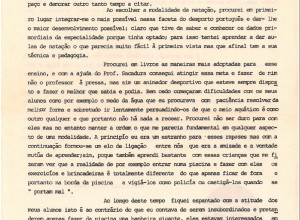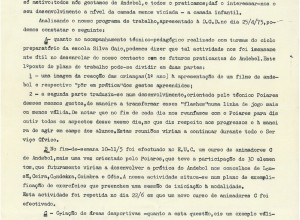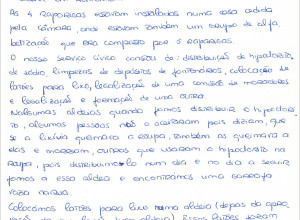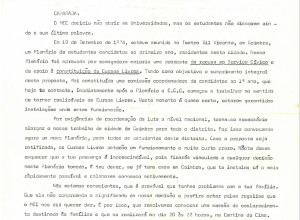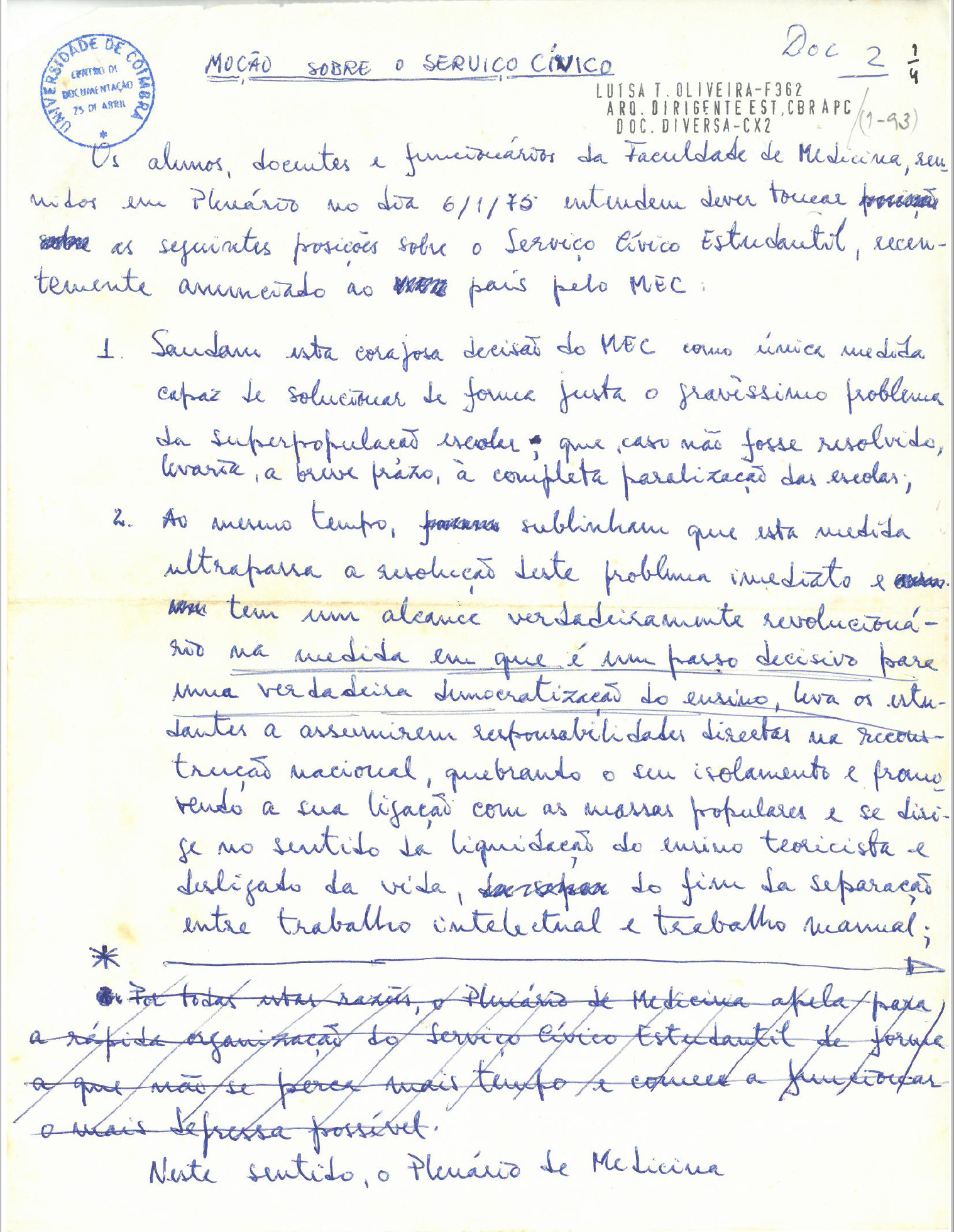
Fifty years ago, on 30 May 1975, the Student Civic Service was created by Decree-Law 270/75.
Conceived as a nationwide project as part of the Ministry of Education and Culture, it envisaged a meeting between final-year secondary school students - candidates for higher education - and the real needs of the country. It was created as a direct solution to an abrupt increase in the number of candidates for higher education in the 1974/75 academic year (from 14,000 to 28,000 candidates compared to the previous year), since the structure of higher education at the time was not prepared to accommodate such a large number of students.
The idea of the SCE emerged during the activities of the Second Provisional Government. However, the first public approach to the idea of an SCE was made during the activities of the Third Provisional Government. From November 1974 onwards, a series of meetings began between an Interministerial Commission specially set up for the purpose and Universities, the Teachers' Union and the Pro-UNEP Commission with a view to creating the SCE. There were essentially two distinct lines of thought as solutions to the problem of too many candidates for higher education: one that advocated the creation of an SCE applicable only to a portion of the candidates and the other applicable to all of them.
Among the most recurrent observations from SCE testimonies are the brevity of the tasks and some projects in both school years and their late start. During the Sixth Provisional Government, the SCE lost its party support base. It was officially suspended on 17 June 1977 during the First Constitutional Government. This was followed by the creation of numerus clausus in all courses, applying a selection to candidates for higher education that led to a significant decrease.
Text based on the book ‘Estudantes e Povo na Revolução: o Serviço Cívico Estudantil (1974-1977)’ by Luísa Tiago de Oliveira. The author is also a donor to CD25A-UC, having handed over the Archive Fund relating to the S.C.E., the result of research and investigation carried out as part of her doctorate.
For this item, we've selected five curious documents belonging to it.
